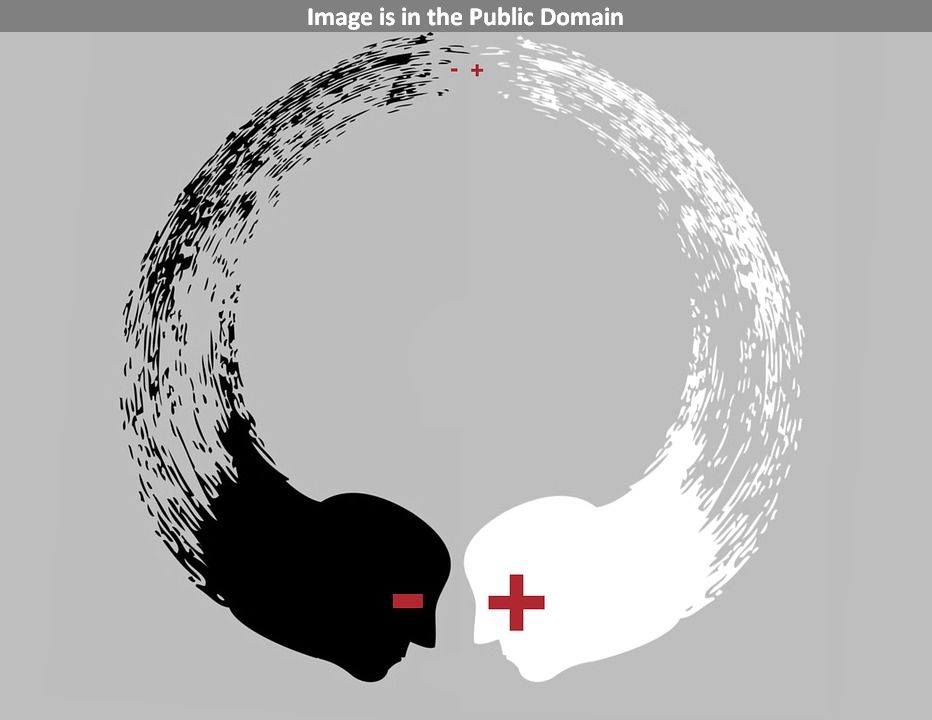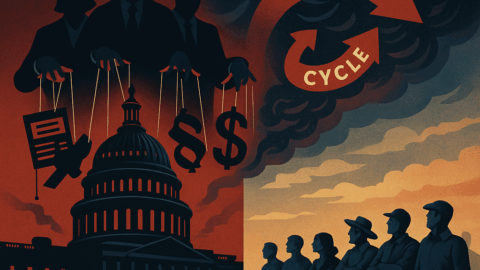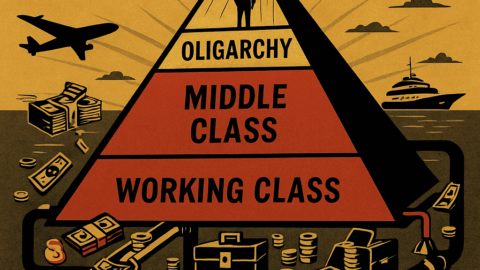What do you do when you run into a conflict between a law of God and a law of man? Which law do you obey? What about a conflict between two man-made laws? Or a law which later turns out to be an unconstitutional one?
The following is a compilation of historical quotes, legal opinions, Supreme Court rulings, Church leaders, and other sources relating to the subject. This document is intended to be a source for political activists, authors, those in the legal profession and others. This document is just a cursory beginning and hence is not exhaustive. It is for educational purposes only and is not meant to be political or legal advice or any other type of advice in any way, shape, or form.
“The general rule is that an unconstitutional statute, though having the form and name of law, is in reality no law, but is wholly void, and ineffective for any purpose; since unconstitutionality dates from the time of its enactment, and not merely from the date of the decision so branding it. An unconstitutional law, in legal contemplation, is as inoperative as if it had never been passed. Such a statute leaves the question that it purports to settle just as it would be had the statute not been enacted. Since an unconstitutional law is void, the general principles follow that it imposes no duties, confers no rights, creates no office, bestows no power or authority on anyone, affords no protection, and justifies no acts performed under it . . . a void act cannot be legally consistent with a valid one. An unconstitutional law cannot operate to supersede any existing valid law. Indeed, insofar as a statute runs counter to the fundamental law of the land, it is superseded thereby. No one is bound to obey an unconstitutional law and no courts are bound to enforce it.”
— American Jurisprudence, Second Edition, Volume 16, Section 177
“The idea persisted for centuries that the end of the state is the attainment of justice and that civil authorities act legitimately only when they follow the principles of justice.”
–Otto Gierke, Political Theories of the Middle Ages, trans. by F. W. Maitland (Cambridge, 1922), pp. 74ff.; cf. p. 172 for note by Maitland on the theories of natural law in the Middle Ages.
“Men supposed that before the State existed the Lex Naturalis already prevailed as an obligatory statute and that immediately or mediately from this flowed those rules of right to which the State owed even the possibility of its own rightful origin. And men also taught that the highest power on earth was subject to the rules of Natural Law. They stood above the Pope and above the Kaiser, above the Ruler and above the Sovereign People, nay, above the whole Community of Mortals. Neither statute nor act of government, neither resolution of the People nor custom could break the bounds that thus were set. Whatever contradicted the eternal and immutable principles of Natural Law was utterly void and would bind no one. The medieval theory declared ‘that every act of the Sovereign which broke the bonds drawn by Natural Law was formally null and void.’ … As null and void, therefore, every judge and every other magistrate who had to apply the law was to treat, not only every unlawful executive act, but every unlawful statute, even though it were published by the Pope or Emperor.”
Otto Gierke, Political Theories of the Middle Ages, trans. by F. W. Maitland (Cambridge, 1922), pp. 75, 84.
“Life, faculties, production—in other words, individuality, liberty, property—this is man. And in spite of the cunning of artful political leaders, these three gifts from God precede all human legislation, and are superior to it. Life, liberty, and property do not exist because men have made laws. On the contrary, it was the fact that life, liberty, and property existed beforehand that caused men to make laws in the first place.”
–(Frederick Bastiat, The Law, pp. 5-6)
“Unconstitutionality is illegality of the highest order.”
(Board of Zoning Appeals V. Decatur Company of Jehovah’s Witnesses, 233 Ind. 83, 117 NE 2nd. 115
“An unconstitutional statute is an utter nullity, is void from the date of its enactment, and is incapable of creating any rights.”
–-Probst V. Board of Education Lands and Funds, DC Neb 103 F
“By the law of the land is most clearly intended the general law; a law which hears before it condemns, which proceeds upon enquiry, and renders judgement only after trial. The meaning is, that every citizen shall hold his life, liberty and property and immunities under the protection of the general rules which govern society. Everything which may pass under the form of an enactment, is not, therefore, to be considered the law of the land.”
–(Webster, Dartmouth College V. Woodward, 4 Wheat. 518, 581 [1819])
“As men we have God for our King, and are under the law of Reason: As Christians, we have Jesus the Messiah for our King, and are under the law revealed by him in the gospel.”
–John Locke, The Reasonableness of Christianity
“Legislative enactments contrary to natural law or natural justice were regarded as “ipso facto” void and it was declared to be the duty of all persons to resist their enforcement. The view of the English Philosopher that “that which is not just is not law and that which is not law ought not to be obeyed.”
–Sydney, Discourses Concerning Government, Book III Chapter II
“Let no man break the laws of the land, for he that keepeth the laws of God hath no need to break the laws of the land: Wherefore, be subject to the powers that be, until He reigns whose right it is to reign, and subdues all enemies under his feet. Behold, the laws which ye have received from my hand are the laws of the Church, and in this light ye shall bold them forth. Behold here is wisdom.”
(Doc. and Cov. 58:21-23.)
“My attitude toward government is succinctly expressed by the following provision taken from the Alabama Constitution: ‘That the sole object and only legitimate end of government is to protect the citizen in the enjoyment of life, liberty, and property, and when the government assumes other functions it is usurpation and oppression.'”
(Alabama Constitution Art. I Sec 35) –(Ezra Taft Benson, The proper role of Government, Conference Report April 1968)
“This law of nature, being coeval with mankind, and dictated by God himself, is of course superior in obligation to any other. It is binding over all the globe, in all countries, and at all times, no human laws are of any validity, if contrary to this; and such of them as are valid derive all their force, and all their authority, meidately or immediately, from this original.”
–William Blackstone, 1765, Commentaries On The Laws Of England, Book I, Sec 2, No. 41
–John Locke, Two Treatises of Civil Government, II, 57; also quoted by Ezra Taft Benson, Conference Report, April 1968“The end of the law is not to abolish or restrain, but to preserve and enlarge freedom. For in all the states of created beings, capable of laws, where there is no law there is no freedom.”
“The origin of justice is to be found in law, for law is a natural force; it is the mind and reason for the intelligent man, the standard by which Justice and Injustice are measured . . . but in determining what Justice is, let us begin with that Supreme Law which had its origin ages before any written law existed or any State had been established.” –Cicero, Laws, I, 19
–Cicero, Laws, I, 19
“My lords, let us consider just law. Does it bring tranquility, good order, piety, justice and liberty and property to a people? Does it nourish patriotism and the way of a manly and upright life? Then it is a good law, and deserves our utter obedience. But if it brings pain, intolerable burdens, injustice, sleepless anxiety and fear and slavery to a people, then it is an evil law passes and upheld by evil men, who hate humanity and wish to subjugate and control it.” –Cicero, quoted in A Pillar of Iron, p. 163
–Cicero, A Pillar of Iron, p.163
“The essence of law does not depend upon words and clauses, inserted in a code or statute book, much less upon the conclusion and explications of lawyers; but upon reason and the nature of things antecedent to all laws.”
–(Trenchard and Gordon, as quoted by Gordon Wood, The Creation of the American Republic, p. 456)
“The imagining omnipotence that whatever is ordained must be law, without any exception fo right or wrong, must be restrained within the bounds of reason, justice and natural equity, and acts therefore which are contrary to nature, justice, morality, benevolence, are contrary to reason, and notwithstanding the authority of Kings, Lords, or Commons, were null, and void, being mere corruptions and not laws.”
–An unnamed North Carolinian writing in 1787, as quoted by Gordon Wood, The Creation of the American Republic, p. 458
“It is a monstrous absurdity to suppose, that the law is to be learnt by a perpetual copying of precedents. For time immemorial can never give a sanction to what is against reason and common sense.”
–(William Livington, as quoted by Hamlin, Legal Edition, p. 159)
“Kings and parliaments did not make law, according to the medieval tradition; they discovered what was the law and promulgated it.”
–(Clarence B. Carson, The American Tradition, p. 40)
“Upon these two foundations, the law of nature and the law of revelation, depend all human laws; that is to say, no human laws should be suffered to contradict these. There are, it is true, a great number of indifferent points, in which both the divine law and the natural leave a man at his own liberty; but which are found necessary for the benefit of society to be restrained within certain limits. And herein it is that human laws have their greatest force and efficacy: for, with regard to such points as are not indifferent, human laws are only declaratory of, and act in subordination to the former. To instance in the case of murder: this is expressly forbidden by the divine, and demonstrably by the natural law; and from these prohibitions arises the true unlawfulness of this crime. Those human laws that annex a punishment to it do not at all increase its moral guilt, or superadd any fresh obligation in foro conscientiae (in the court of conscience) to abstain from its perpetration. Nay, if any human law should allow or enjoin us to commit it, we, are bound to transgress that human law, or else we must offend both the natural and the divine.”
—William Blackstone, as quoted by Clarence B. Carson in The American Tradition, p. 41
“We may safely assert . . . that no civil rulers are to be obeyed when they enjoin things that are inconsistent with the commands of God . . . all commands running counter to the declared will of the Supreme Legislator of Heaven and Earth, are null and void; and therefore disobedience to them is a duty, not a crime . . .”
–(Jonathan Mayhew, as quoted by Clarence B. Carson in The American Tradition, p. 42)
“But where says some is the King of America? I’ll tell you, friend, he reigns above, and doth not make havoc of mankind like the Royal Brute of Britain. Yet that we may not appear to be defective even in earthly honors, let a day be solemnly set aside for proclaiming the charter, let it be brought forth placed on the divine law, the word of God, let a crown be placed thereon, by which the world may know, that so far as we approve of monarchy, that in America THE LAW IS KING. for as in absolute governments the King is law, so in free countries the law ought to be king; and there ought to be no other. But lest any ill use should afterwards arise, let the crown at the conclusion of the ceremonies be demolished, and scattered among the people whose right it is.”
–(Thomas Paine, Common Sense, 1776)
“To all who have discerning eyes, it is apparent that the republican form of government established by our noble forefathers cannot long endure once fundamental principles are abandoned. Momentum is gathering for another conflict–a repetition of the crisis of two hundred years ago. This collision of ideas is worldwide. Another monumental moment is soon to be born. The issue is the same that precipitated the great premortal conflict–will men be free to determine their own course of action or must they be coerced? We are fast approaching that moment prophesied by Joseph Smith when he said, ‘even this nation will be on the very verge of crumbling to pieces and tumbling to the ground, and when the Constitution is upon the brink of ruin, this people will be the staff upon which the nation shall lean, and they shall bear the Constitution away from the very verge of destruction.'” –July 19, 1840, Church Historians Office, SLC.”
(Ezra Taft Benson, The Constitution: A Heavenly Banner, Deseret Book, 1986, p. 27-28)
“When Kings, ministers, governors, or legislators, therefore, instead of exercising the powers entrusted with them according to the principles, forms, and proportions stated by the constitution, and established by the original compact, prostitute those powers to the purpose of oppression; to subvert, instead of supporting a free constitution; to destroy, instead of preserving the lives, liberties and properties of the people; they are no longer to be deemed magistrates vested with a sacred character, but become public enemies, and ought to be resisted.”
–John Adams, The Works of John Adams, Second President of the United States: With a Life of the Author, notes and illustration, by Charles Francis Adams, 1856; also quoted by President David O. McKay, Conference Report, Oct 1961
“Then we have our local Legislature, as other Territories have, to enact laws for the protection of the good and virtuous, for punishment of crime, the execution of justice, and the preservation of peace and good order throughout the Territory. Is there anything wrong in all this? Not that I am aware of. Whose rights have we interfered with? Who cannot obtain justice here? Who are deprived of their rights here? Is there any man, woman, or child, stranger or citizen deprived of his or her rights, or who cannot obtain a hearing for grievances real or imaginary? Who is there throughout the length and breadth of the Territory who cannot obtain the full benefit of law, equity, and justice? No one. Well, we are here in this capacity, and there are other things that underlie these, if you please. The Republicans, you know, in the States, have been very fond for a long time of talking about a higher law of some kind. We, too, have a higher law, not a negro law particularly, but a law that emanates from God; a law that is calculated to promote the best interests and the happiness of this people, and of the world when they will listen to it. Then do you profess to ignore the laws of the land? No; not unless they are unconstitutional, then I would do it all the time. Whenever the Congress of the United States, for instance, pass a law interfering with my religion, or with my religious rights, I will read a small portion of that instrument called the Constitution of the United States, now almost obsolete, which says—”Congress shall pass no law interfering with religion or the free exercise thereof;” and I would say, gentlemen, you may go to Gibraltar with your law, and I will live my religion. When you become violators of the Constitution you have sworn before high heaven to uphold, and perjure yourselves before God, then I will maintain the right, and leave you to take the wrong just as you please. There are other things, too, that I, as an individual would do. There have been attempts made here to interfere with the trial by jury, a right guaranteed by the Constitution of the United States as well as by the Magna Charta of England. And we have had cases right in our midst where a judge has told the jury that if they did not bring in such a verdict as he had instructed them to, he would set it aside. Of what use, then, is a jury? Why not let the judge act without them; if they are to be dictated to by him what becomes of our freedom? If my services as a juryman were required, I would give my opinion frankly and honestly, and no judge should control me; but I would try to be a man, and would not be cowed by any man sent among us trying to pervert justice. No man should make a scapegoat of me; if he wished to violate constitutional rights he should do it on his own responsibility. Some men will endure a great deal in matters of this kind, and they will call it humility; but I desire no such humility. I want a principle that will maintain, uphold, and stand by the rights of man, giving to all men everywhere equal rights, and that will preserve inviolate the fundamental principles of the Constitution of our country.”
–(John Taylor, Journal of Discourses, Vol. 11, p. 343-345, Delivered in the Tabernacle March 31st 1867)
“. . . And while we acknowledge, as citizens of the United States, the laws and institutions thereof (which by the way are very easily complied with), we have a higher law, more noble principles, ideas that are more elevated and expansive; principles that reach to the whole human family, and which he will continue to reveal to us. Does that prevent us from obeying the laws of the land? Certainly not. But then, is that a perfect system? I do not think that many of you will say it is, nor do I think that the people of the United States of any political party will tell you it is. I do not wish to cast any reflections or refer to any events that have taken place; I am merely speaking on religious principles, and principles too in which we as Latter-day Saints are interested. We are united, then, as a body politic, as an integral part of this Government, and it becomes our duty to submit to the laws and institutions of that Government—to all that are constitutional, framed and based upon correct principles, and not in violation of what the fathers of the country instituted.”
–John Taylor, Journal of Discourses, Vol. 21, p. 32, Delivered in the Tabernacle during General Conference, April 9, 1879
The following statements were made in regard to the Church of Jesus Christ of Latter-day Saints’ defiance of the law of the land over polygamy. The first rather long quote I have used a gray background to provide continuity to the text:
Let no man break the laws of the land, for he that keepeth the laws of God hath no need to break the laws of the land:”Wherefore, be subject to the powers that be, until He reigns whose right it is to reign, and subdues all enemies under his feet.”Behold, the laws which ye have received from my hand are the laws of the Church, and in this light ye shall bold them forth. Behold here is wisdom.” (Doc. and Cov. 58:21-23.)
“The following I quote from a revelation given in December, 1833, page 357“:
According to the laws and the constitution of the people which I have suffered to be established, and should be maintained for the rights and protection of all flesh, according to just and holy principles, “That every man may act in doctrine and principle pertaining to futurity, according to the moral agency which I have given unto him, that every man may be accountable for his own sins in the day of judgment. “Therefore, it is not right that any man should be in bondage one to another. “And for this purpose have I established the constitution of this land, by the hands of wise men whom I raised up unto this very purpose, and redeemed the land by the shedding of blood.” (Doc. and Cov. 101:77-80.)
“Again, in a revelation on page 342“:
“And now, verily I say unto you concerning the laws of the land, it is my will that my people shall observe to do all things whatsoever I command them;”And that law of the land which is constitutional, supporting that principle of freedom in maintaining rights and privileges, belongs to all mankind, and is justifiable before me;”Therefore, I, the Lord, justify you, and your brethren of my Church, in befriending that law which is the constitutional law of the land;”And as pertaining to law of man, whatsoever is more or less than these, cometh of evil.”I, the Lord God, make you free, therefore ye are free indeed; and the law also maketh you free;”Nevertheless, when the wicked rule, the people mourn,”Wherefore, honest men, and wise men should be sought for diligently, and good men and wise men ye should observe to uphold; otherwise whatsoever is less than these cometh of evil.”And I give unto you a commandment, that ye shall forsake all evil and cleave unto all good, that ye shall live by every word which proceedeth forth out of the mouth of God;”For he will give unto the faithful line upon line, precept upon precept; and I will try you and prove you herewith;”And whoso layeth down his life in my cause, for my name’s sake, shall find it again, even life eternal:”Therefore be not afraid of your enemies, for I have decreed in my heart, saith the Lord, that I will prove you in all things, whether you will abide in my covenant, even unto death, that you may be found worthy;”For if ye will not abide in my covenant, ye are not worthy of me.” (Doc. and Cov. 98:4-15.)
“This, as I understand it, is the law of God to the Church of Jesus Christ of Latter-day Saints in all the world. And the requirements here made of us must be obeyed, and practically carried out in our lives, in order that we may secure the fulfilment of the promises which God has made to the people of Zion. And it is further written, that inasmuch as ye will do the things which I command you, thus saith the Lord, then am I bound; otherwise there is no promise. We can therefore only expect that the promises are made and will apply to us when we do the things which we are commanded.” (Doc. and Cov. 82:10; 101:7; 124:47-49.)
“We are told here that no man need break the laws of the land who will keep the laws of God. But this is further defined by the passage which I read afterwards—the law of the land, which all have no need to break, is that law which is the constitutional law of the land, and that is as God himself has defined it. And whatsoever is more or less than this cometh of evil. Now, it seems to me that this makes this matter so clear that it is not possible for any man who professes to be a member of the Church of Jesus Christ of Latter-day Saints to make any mistake, or to be in doubt as to the course be should pursue under the command of God in relation to the observance of the laws of the land. I maintain that the Church of Jesus Christ of Latter-day Saints has ever been faithful to the constitutional laws of our country. I maintain, also, that I have a right to this opinion, as an American citizen, as one who was not only born on American soil, but who descended from parents who for generations were born in America. I have a right to interpret the law in this manner, and to form my own conclusions and express my opinions thereon, regardless of the opinions of other men.”
“I ask myself, What law have you broken? What constitutional law have you not observed? I am bound not only by allegiance to the government of the United States but by the actual command of God Almighty, to observe and obey every constitutional law of the land, and without hesitancy I declare to this congregation that I have never violated nor transgressed any law, I am not amenable to any penalties of the law, because I have endeavored from my youth up to be a law-abiding citizen, and not only so, but to be a peacemaker, a preacher of righteousness, and not only to preach righteousness by word, but by example. What, therefore, have I to fear? The Lord Almighty requires this people to observe the laws of the land, to be subject to “the powers that be,” so far as they abide by the fundamental principles of good government, but he will hold them responsible if they will pass unconstitutional measures and frame unjust and proscriptive laws, as did Nebuchadnezzar and Darius, in relation to the three Hebrew children and Daniel. If lawmakers have a mind to violate their oath, break their covenants and their faith with the people, and depart from the provisions of the constitution, where is the law, human or divine, which binds me, as an individual, to outwardly and openly proclaim my acceptance of their acts?” –(Joseph F. Smith, Gospel Doctrine: Selections from the Sermons and Writings of Joseph F. Smith, compiled by John A. Widtsoe [Salt Lake City: Deseret Book Co., 1939], 406; Also included in “Gospel Doctrine: Selections from the Sermons and Writings of Joseph F. Smith, Sixth President of the Church of Jesus Christ of Latter-day Saints, A Course of Study for the Melchizedek Priesthood Quorums 1971-1972,” Vol 2., pgs., 179-183)
John Taylor said, “We believe in . . . loyalty to our country, but when they enact laws, forbidding us the free exercise of our religion, we cannot submit. God is greater than the United States; and when the government conflicts with Heaven, we will be ranged under the banner of Heaven against the government… If the United States say different the Saints cannot obey it . . . We will worship God according to the dictates of our own conscience.” (1/6/1880)
Heber J. Grant: “No matter what restrictions we are placed under by men, our only consistent course is to keep the commandments of God. We should, in this regard, place ourselves in the same position as that of the three Hebrews who were cast into the fiery furnace.” (4/5/1885)
George Q. Cannon: “I admit that those raising children by plural wives are not complying with man-made laws, but in the sight of God they are not sinning, as there is no sin in it.” (Reed Smoot Hearings 1:9)
Wilford Woodruff: “’God says, “We shall be damned if we do not obey the law.’ Congress says, “We shall be damned if we do.” It places us precisely in the same position that it did the Hebrews in the fiery furnace, and Daniel in the den of lions. … Our enemies have pursued the same course … and made it a law of offense to obey one of the laws of our God. Now who shall we obey? God or man? My voice is that we obey God.” (4/21/1879)
Apostles Penrose & Richards wrote a letter to John Taylor stating: “We then say, we consider the law of God superior to the law of the State, and if we have to break the law of the State to keep the law of God, we will stand by the consequences.” (2/16/1887)
John Taylor: “I defy the United States. I will obey the will of God. These are my sentiments, and all of you who sympathize with me in this position raise your right hand.” (1/6/1880)







